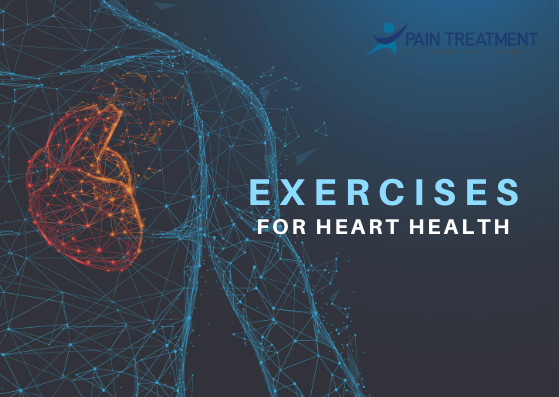Exercises For Improving Heart Health
Physical activity is one of the most important aspects of maintaining a healthy heart.
For American Heart Month , PTCOA is examining some of the exercises that benefit the heart.
Stretching
Many people avoid exercise because it causes joint and muscle pain. As a result, their muscles get weaker, and they lose flexibility. Weak, stiff muscles lead to a number of issues, including increased risk of injury, decreased balance and worsening joint problems. Once the muscles are weak, exercising becomes more painful and tiring--which further decreases a person’s ability and motivation to exercise.
All of this has a negative impact on the heart.
Regular stretching can help lengthen and strengthen muscles all over the body. As a result, those muscles are able to accommodate longer and more intense exercise.
Stretching also encourages blood flow to the muscles, including the heart muscle. Some research has linked regular stretching to a reduction in arterial stiffness . Additionally, stretching while practicing deep breathing exercises can lower blood pressure.
Swimming
The American Heart Association recommends at least 150 minutes of moderate exercise per week for optimal heart health. That breaks down to just 30 minutes of exercise five days a week.
Unfortunately, for individuals who suffer from chronic joint or back pain, many forms of aerobic exercise (like running, stair climbing and bicycling) are not an option. This can lead to a sedentary lifestyle, which increases the risk of a number of cardiovascular diseases and can even shorten life span .
Swimming can help you break out of a sedentary lifestyle and get your blood pumping, without putting excess pressure on the joints and muscles. Swimming can be enjoyed by all people of all ages, but is especially good for people who avoid exercise because of arthritis or other painful conditions.
Swimming just half an hour three times per week has been linked to lower cholesterol and even control of blood sugar.
Weightlifting
Aerobic exercise is known as the gold standard in heart-healthy physical activity. However, you might be surprised to learn that weightlifting (resistance exercise) also has plenty of cardiovascular benefits.
A study from Medicine & Science in Sports & Exercise showed that just one hour per week of weight training (using either free weights or machines) can lower the risk of heart attack or stroke.
Similarly, a July 2019 study from JAMA Cardiology showed that strength training was actually superior to aerobic exercise at reducing heart fat.
Walking
Walking is the most popular form of exercise because, for many people, it’s the most accessible. You don’t need expensive equipment or a pool to walk. All you need is space and a comfortable, supportive pair of shoes. Walking outside is considered mentally therapeutic for many people, while others appreciate walking’s low impact on joints, muscles and bones.
Walking has been associated with a number of heart healthy benefits and can help with high blood pressure, weight gain and even diabetes.
Physical Therapy Can Provide the Foundation for Smart Exercise
For individuals with chronic pain or joint conditions, exercise is hard. Without education on the types of exercise that work for their bodies, many people with painful conditions simply give up.
This can have dramatic negative effects on the heart and cardiovascular system, especially for older adults.
Physical therapy can help individuals with arthritis, neck pain, back pain and other chronic pain conditions find exercises that work for them.
PTCOA’s physical therapy program helps individuals of all ages recover from injuries, surgery and other pain conditions.
Contact us today to schedule your appointment: (844) 215-0731.














